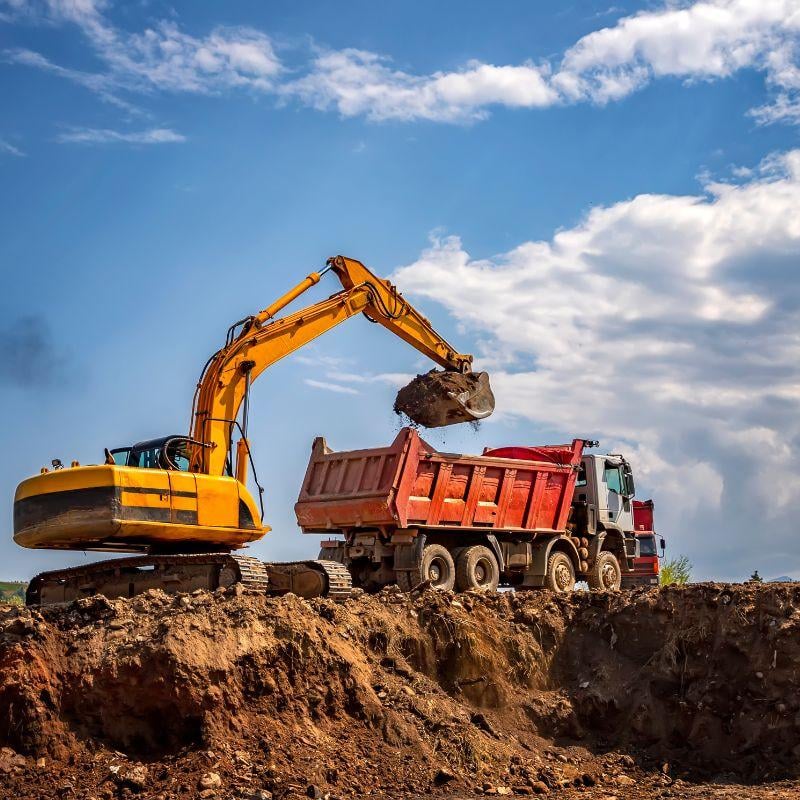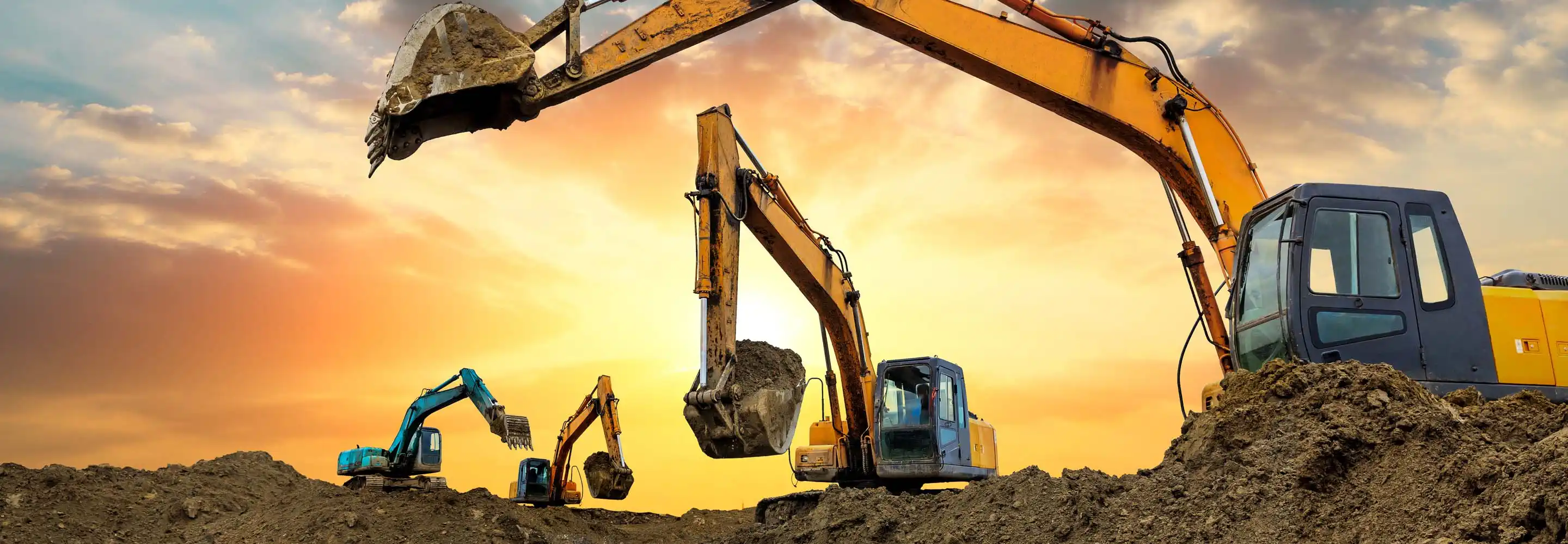Dozer Rental in Tuscaloosa, AL: Trusted and Affordable Heavy Machinery
Dozer Rental in Tuscaloosa, AL: Trusted and Affordable Heavy Machinery
Blog Article
Discovering the Financial Conveniences of Renting Building Devices Compared to Owning It Long-Term
The decision between leasing and owning construction devices is pivotal for monetary administration in the market. Renting out deals instant price financial savings and operational adaptability, allowing firms to allot sources more effectively. Comprehending these nuances is necessary, especially when considering exactly how they line up with specific job demands and economic approaches.

Price Contrast: Renting Out Vs. Possessing
When reviewing the monetary ramifications of renting versus possessing building and construction equipment, a thorough price contrast is crucial for making notified decisions. The option between possessing and renting out can considerably impact a business's lower line, and understanding the linked expenses is important.
Renting building and construction tools generally entails lower in advance costs, enabling organizations to allot capital to various other operational needs. Rental agreements commonly consist of adaptable terms, enabling business to access advanced equipment without long-lasting dedications. This versatility can be specifically advantageous for temporary projects or rising and fall workloads. Nevertheless, rental costs can gather with time, potentially going beyond the cost of possession if devices is required for a prolonged period.
Alternatively, owning building devices requires a considerable preliminary financial investment, in addition to ongoing costs such as insurance, financing, and devaluation. While possession can bring about long-term cost savings, it likewise connects up funding and may not give the same level of flexibility as renting. In addition, having devices requires a commitment to its utilization, which might not constantly line up with job needs.
Eventually, the choice to own or lease must be based upon an extensive analysis of particular task needs, monetary capability, and lasting calculated goals.

Upkeep Duties and costs
The selection between owning and renting out building devices not only includes financial factors to consider however additionally includes recurring upkeep costs and obligations. Possessing tools requires a substantial commitment to its maintenance, that includes regular assessments, fixings, and possible upgrades. These duties can rapidly accumulate, leading to unexpected prices that can stress a budget plan.
On the other hand, when leasing tools, upkeep is typically the obligation of the rental company. This arrangement permits professionals to prevent the financial problem connected with wear and tear, along with the logistical obstacles of scheduling repairs. Rental contracts usually consist of provisions for upkeep, suggesting that specialists can focus on finishing tasks instead of fretting about equipment problem.
Moreover, the varied variety of equipment readily available for rent enables companies to pick the most recent designs with innovative modern technology, which can improve effectiveness and efficiency - scissor lift rental in Tuscaloosa, AL. By choosing leasings, companies can avoid the long-term obligation of equipment devaluation and the linked maintenance frustrations. Inevitably, evaluating upkeep costs and obligations is critical for making an informed decision concerning whether to lease or have building and construction devices, dramatically affecting general job prices and operational performance

Devaluation Impact on Ownership

A substantial variable to think about in the choice to own construction equipment is the impact of depreciation on you can try here overall ownership costs. Depreciation stands for the decrease in value of the devices over time, influenced by elements such as usage, wear and tear, and advancements in innovation. As devices ages, its market value reduces, which can substantially impact the proprietor's economic position when it comes time to trade the equipment or market.
For construction business, this devaluation can convert to considerable losses if the devices is not made use of to its maximum possibility or if it lapses. Proprietors need to make up depreciation in their monetary forecasts, which can result in higher general prices contrasted to renting. In addition, the tax obligation effects of depreciation can be complex; while it might provide some tax advantages, these are commonly countered by the truth of reduced resale value.
Eventually, the concern of devaluation highlights the significance of comprehending the long-lasting monetary dedication involved in owning building and construction devices. Business have to thoroughly review just how commonly they will use the tools and the possible monetary effect of devaluation to make an enlightened choice regarding ownership versus leasing.
Economic Adaptability of Renting
Leasing construction equipment uses considerable monetary flexibility, enabling companies to assign resources a lot more efficiently. This versatility is particularly vital in a market characterized by rising and fall job needs and varying workloads. By opting to rent, companies can prevent the substantial funding investment needed for purchasing equipment, preserving cash circulation for other operational needs.
Additionally, renting out equipment allows companies to tailor their devices choices to details project needs without the lasting dedication related to ownership. This means that services can easily scale their devices inventory up or down based upon expected and existing job requirements. As a result, this flexibility reduces the danger of over-investment in equipment that may end up being underutilized or obsolete over time.
An additional economic benefit of renting out is the capacity for tax benefits. Rental repayments are typically considered general expenses, enabling immediate tax deductions, unlike depreciation on owned equipment, which is find topped a number of years. scissor lift rental in Tuscaloosa, AL. This immediate expense acknowledgment can even more enhance a business's money placement
Long-Term Task Factors To Consider
When examining the lasting requirements of a building organization, the choice in between having and renting equipment ends up being extra intricate. For jobs you could try these out with extensive timelines, purchasing tools might seem useful due to the potential for lower overall costs.
The building and construction sector is progressing rapidly, with new equipment offering improved performance and safety functions. This adaptability is specifically valuable for companies that handle varied projects calling for various types of equipment.
Moreover, financial security plays a vital role. Owning tools typically requires considerable capital expense and depreciation worries, while renting out permits more foreseeable budgeting and cash money flow. Ultimately, the choice between renting and having needs to be lined up with the calculated purposes of the building business, taking right into account both current and expected job needs.
Conclusion
In conclusion, renting construction devices uses considerable monetary advantages over long-term ownership. Ultimately, the decision to rent rather than own aligns with the dynamic nature of building jobs, enabling for flexibility and accessibility to the newest devices without the financial burdens associated with possession.
As tools ages, its market worth reduces, which can considerably impact the owner's financial position when it comes time to offer or trade the devices.
Renting out building devices offers substantial economic versatility, allowing firms to allot sources much more successfully.Furthermore, renting tools allows companies to customize their devices choices to certain project requirements without the long-lasting commitment associated with possession.In final thought, renting out construction equipment offers significant economic benefits over long-term possession. Ultimately, the choice to rent rather than own aligns with the vibrant nature of construction tasks, allowing for versatility and accessibility to the most current devices without the economic problems associated with possession.
Report this page